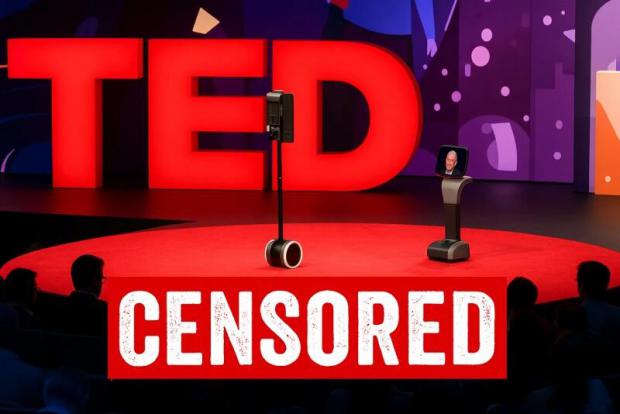
Breaking News
 Trump Administration Furthering Control Grid
Trump Administration Furthering Control Grid
 Living in a World of Ongoing Shortages
Living in a World of Ongoing Shortages
 The Gaza Crisis and the Repeal of Christianity's Personhood Revolution
The Gaza Crisis and the Repeal of Christianity's Personhood Revolution
 RED ALERT: Doctors Sound the Alarm After Fibrous Clots Discovered in Young Children Born...
RED ALERT: Doctors Sound the Alarm After Fibrous Clots Discovered in Young Children Born...
Top Tech News
 Hydrogen Gas Blend Will Reduce Power Plant's Emissions by 75% - as it Helps Power 6 States
Hydrogen Gas Blend Will Reduce Power Plant's Emissions by 75% - as it Helps Power 6 States
 The Rise & Fall of Dome Houses: Buckminster Fuller's Geodesic Domes & Dymaxion
The Rise & Fall of Dome Houses: Buckminster Fuller's Geodesic Domes & Dymaxion
 New AI data centers will use the same electricity as 2 million homes
New AI data centers will use the same electricity as 2 million homes
 Is All of This Self-Monitoring Making Us Paranoid?
Is All of This Self-Monitoring Making Us Paranoid?
 Cavorite X7 makes history with first fan-in-wing transition flight
Cavorite X7 makes history with first fan-in-wing transition flight
 Laser-powered fusion experiment more than doubles its power output
Laser-powered fusion experiment more than doubles its power output
 Watch: Jetson's One Aircraft Just Competed in the First eVTOL Race
Watch: Jetson's One Aircraft Just Competed in the First eVTOL Race
 Cab-less truck glider leaps autonomously between road and rail
Cab-less truck glider leaps autonomously between road and rail
 Can Tesla DOJO Chips Pass Nvidia GPUs?
Can Tesla DOJO Chips Pass Nvidia GPUs?
 Iron-fortified lumber could be a greener alternative to steel beams
Iron-fortified lumber could be a greener alternative to steel beams
When Ideas Become Too Dangerous To Platform

It was a bold examination of how, in times of crisis, fear and conformity can be deliberately harnessed by those in power to manipulate public behaviour and silence dissent.
Her message was a call to defend the freedom to question, to challenge authority, and to think independently.
The local TEDxUNSW team, who had worked closely with Foster to ensure her talk met TEDx standards, described it as "insightful and important."
But when the video was submitted to TED's US headquarters for publication on the organisation's official YouTube channel, it was rejected.
The reason? The talk "did not adhere to the TEDx content guidelines."
A Defence of Dissent—Silenced
Foster's talk drew on the Covid-19 experience, arguing that during the pandemic, the space for critical thought collapsed. Dissenters were vilified, and dialogue gave way to dogma.
She described how critics of mainstream Covid responses were smeared with labels—"a danger to public health…a tinfoil hat-wearing conspiracy theorist…probably a prepper or a cooker…almost surely a far-right extremist and probably racist to boot."
Drawing comparisons with the Cultural Revolution and the rise of Nazi Germany, she warned that the marginalisation of dissent has deep historical roots—where enemies of the state are manufactured to maintain social control.
Foster recalled being labelled a "granny killer," defamed online (despite never having a Twitter account), and receiving death threats for questioning lockdown policies.
"Well, I didn't shut up," she said. "And today, more than four years on… hundreds of books, academic papers, and tragic personal stories confirm I was right."
"The lockdowns didn't save lives. They were rather a massive human sacrifice induced by fear, politics, and money," she added.



